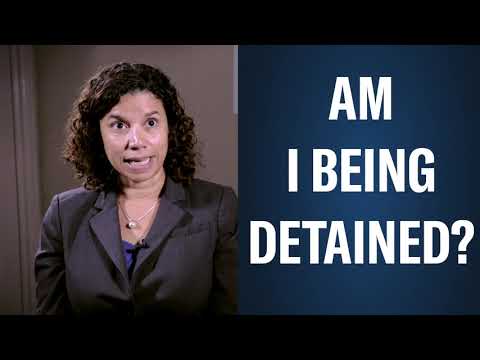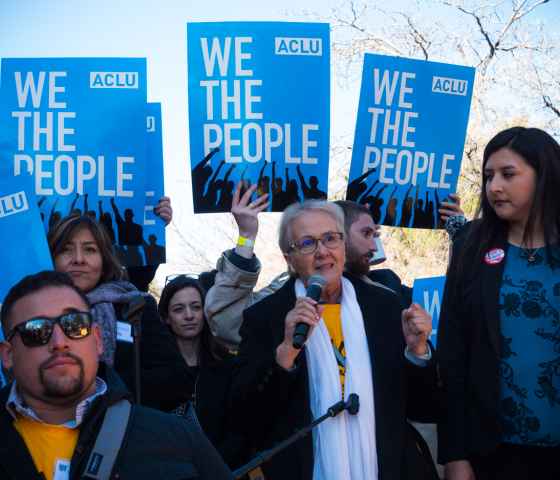This content is intended to serve as general information; it is not legal advice nor intended as legal advice.
- Border Patrol may stop vehicles at certain checkpoints to: (1) ask a few, limited questions to verify citizenship of the vehicles’ occupants and (2) visually inspect the exterior of a vehicle.
- Agents may send any vehicle to a secondary inspection area for the same purpose: brief questioning and visual inspection.
- Agents should not ask questions unrelated to verifying citizenship, nor can they hold you for an extended time without cause.
- Even though you always have the right to remain silent, if you don’t answer questions to establish your citizenship, officials may detain you longer in order to verify your immigration status.
NEVER FLEE A CHECKPOINT!
Roving Patrols
- Border Patrol “roving patrols” cannot pull over vehicles to question occupants about their immigration status unless agents have a “reasonable suspicion” of an immigration violation or crime. Reasonable suspicion is more than just a “hunch.”
- Generally, the further you are from the border, the less likely it is that agents will have “reasonable suspicion” of an immigration violation to justify a stop.
- Agents should always be able to explain the reason for a stop to the driver.
- It is illegal for Border Patrol to rely on the race or ethnicity of a driver or passenger to justify a stop.
Vehicle Searches
- Border Patrol cannot search the interior of a vehicle without the owner’s consent or “probable cause” (a reasonable belief, based on the circumstances, that an immigration violation or crime has likely occurred).
- Agents can obtain probable cause for a search if a drug-sniffing dog legitimately “alerts” to the presence of drugs. If Border Patrol uses a drug-sniffing dog and falsely claims the dog has alerted to the presence of drugs or contraband in your vehicle, record as much information about the incident as possible and report it.
Important Points to Remember
- If you are stopped, detained, or harassed by Border Patrol, try to get the agent(s)’ name, number, and any other identifying information.
- If you are detained or arrested by any law enforcement officials, you have the right to remain silent and the right to speak to an attorney. You do not have to provide information about where you were born, how you entered the U.S or how long you have been here.
- Videotaping or recording interactions with Border Patrol on private property, in vehicle stops, and at checkpoints, is not against the law. However, CBP prohibits videotaping or recording anything on government property at a port of entry.
- The government asserts that agents at ports of entry don’t need any suspicion to search electronic devices like computers and phones. However, agents do need reasonable suspicion to hold a device for an extended period of time or do invasive searches of that device.
- Never provide fake documents or say you are a U.S. citizen if you are not.
- Border Patrol may board buses and trains to question individuals about their citizenship. Other than at ports of entry, agents boarding buses and trains may not search or even pat down luggage without consent or probable cause.
- Refusing a search does not give agents probable cause for a search.
- If you are approached on the street or in a public place, you do not have to answer agents’ questions or provide identification. Ask if you are free to go. If you are not free to go, you are under arrest and have the right to remain silent.
- It is illegal for law enforcement officers to perform any stops, searches, detentions, or deportations based on your race, national origin, religion, sex, or ethnicity.


